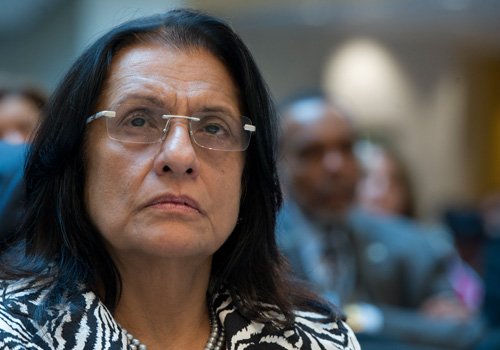We stand with the people of Nepal: WHO
April 28, 2015 | Tuesday | News | By BioSpectrum Bureau
We stand with the people of Nepal: WHO
Dr Poonam K Singh, regional director, WHO Southeast Asia
The World Health Organization this morning handed over four emergency health kits comprising of medicines and medical supplies and $175, 000 as the first tranche of emergency health funds to meet the immediate health needs of the earthquake affected people in Nepal.
"Within hours of the tragedy, WHO disbursed medical supplies to cover the health needs of 40,000 people for three months. These supplies are in the form of inter-agency emergency health kits and were given to hospitals in Nepal treating the injured," WHO Southeast Asia regional director Dr Poonam Khetrapal Singh said.
WHO also immediately made available $175,000 to the Ministry of Health and Population, Nepal, as the first tranche of South-East Asia Regional Health Emergency Fund (SEARHEF).
The SEARHEF funds are aimed at meeting immediate financial needs and to fill critical gaps in the aftermath of a disaster.
Simultaneously, WHO is supporting the Ministry of Health and Population, Nepal, to continue to assess the health needs of the affected people and the damage to health facilities.
Senior officials from the WHO Regional office are in Kathmandu, to reinforce WHO Nepal Office's support to the Government of Nepal.
Other than the injured, those rendered homeless by the earthquake and are in need of immediate support for regular public health services, water and sanitation and psycho social support to deal with the trauma caused by the tragedy.
The WHO emergency kits disbursed include medicines, disposables and instruments.
Each kit can meet the needs of 10,000 people for three months. Each kit has a basic and supplementary unit.
The basic unit is intended for use by primary health care workers with limited training.
It contains non-injectable drugs, medical supplies and some essential equipment, accompanied by simple treatment guidelines.
Basic equipment also has a complete sterilization set and items to help provide for clean water at the health facility.
The supplementary unit contains drugs, renewable supplies and equipment needed by doctors working in first- or second-referral health facilities.
The kits, developed by WHO, can also be used for initial supply of primary health care facilities where the normal system of provision has broken down.
Reiterating all possible support, Dr Singh said WHO stands with the people and the Government of Nepal in this hour of crisis and would do everything to save lives.









